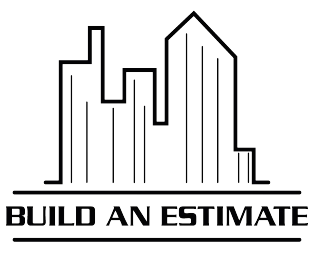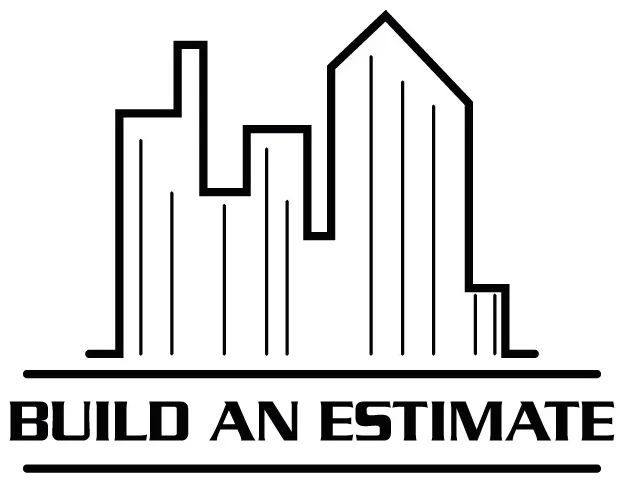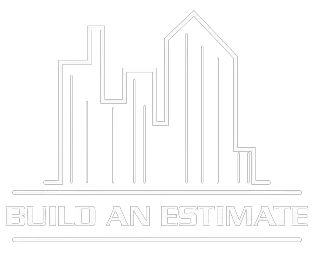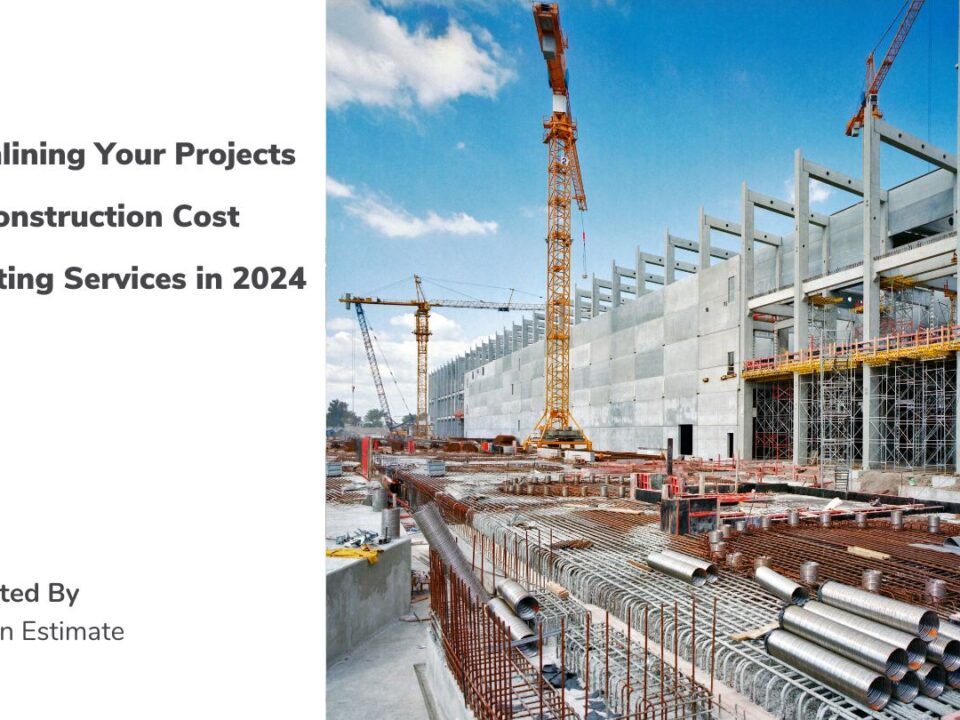- HOME
- SERVICES
- OUR TRADES
- SAMPLES
- ABOUT US
- CONTACT
- Home
- Services
- Our Trades
- Samples
- Pricing
- Blog
- About Us
- Contact
- HOME
- SERVICES
- OUR TRADES
- SAMPLES
- ABOUT US
- CONTACT
- Home
- Services
- Our Trades
- Samples
- Pricing
- Blog
- About Us
- Contact

5 Ways a Construction Estimator Consultant BAE Can Help Streamline Your Construction Projects
August 1, 2023
Estimates Unveiled: The Key Components and Best Practices in Building Construction
August 7, 2023Mastering the Art of Industrial Estimating: How Professional Estimating Services Can Optimize Your Project’s Success
Table of Content:
- Importance of Accurate Estimating in Industrial Projects
- Challenges Faced in Industrial Estimating
- Benefits of Using Professional Estimating Services
- How Professional Estimating Services Optimize Project Success
- Factors to Consider When Choosing an Estimating Service
- Case Studies of Successful Industrial Projects with Professional Estimating Services
- Common Mistakes to Avoid in Industrial Estimating
- Tools and Technologies for Efficient Industrial Estimating
- Conclusion: Investing in Professional Estimating Services for Long-Term Success
- FAQ
In the fast-paced world of industrial projects, accurate estimating is the key to success. Whether you’re planning a large-scale construction project or evaluating the cost of equipment installations, mastering the art of industrial estimating is essential. However, with the complexity and ever-changing nature of the industry, it can be challenging to navigate the intricacies of estimating on your own. That’s where professional estimating services come in.
These experts are equipped with the knowledge, experience, and tools to optimize your project’s success by providing accurate cost estimates and valuable insights. In this article, we will explore the benefits of partnering with professional estimating services and how they can help you streamline your project planning, mitigate risks, and ultimately achieve your desired outcomes. So, if you’re ready to take your industrial estimating to the next level, keep reading to discover the secrets of success in this crucial aspect of project management.
Importance of Accurate Estimating in Industrial Projects
Accurate estimating is the cornerstone of any successful industrial project. It provides a solid foundation for project planning, budgeting, and decision-making. Without accurate estimates, project managers and stakeholders are left in the dark, unable to make informed decisions about resource allocation, timelines, and project feasibility.
One of the primary reasons accurate estimating is crucial in industrial projects is the potential for cost overruns. Industrial projects often involve numerous variables, such as materials, labor, equipment, and unforeseen challenges. Without accurate estimating, it’s easy for costs to spiral out of control, leading to delays, budget constraints, and ultimately, project failure.
Furthermore, accurate estimating is essential for managing client expectations. Clients rely on accurate cost estimates to make informed decisions about project scope, investment, and ROI. By providing accurate estimates, industrial estimators can build trust with clients and ensure that projects are aligned with the client’s goals and budget.
Challenges Faced in Industrial Estimating
Estimating industrial projects comes with its fair share of challenges. The complexity of the projects, the evolving nature of the industry, and the multitude of variables involved make accurate estimating a difficult task. Some common challenges faced in industrial estimating include:
1. Uncertainty: Industrial projects often involve uncertainty due to unforeseen circumstances, changing market conditions, and evolving technologies. Estimators must navigate this uncertainty and make educated assumptions to provide accurate estimates.
2. Specialized Knowledge: Industrial estimating requires a deep understanding of the industry, including materials, equipment, regulations, and labor costs. Estimators must stay updated on the latest industry trends and possess specialized knowledge to provide accurate estimates.
3. Data Availability: Obtaining accurate and up-to-date data for estimating can be a challenge in the industrial sector. Estimators must rely on historical data, industry benchmarks, and their own expertise to fill in the gaps and make reliable estimates.
4. Time Constraints: Industrial projects often have tight deadlines, leaving limited time for estimating. Estimators must work efficiently while maintaining accuracy to meet project timelines.
Overcoming these challenges requires expertise, experience, and the right tools. This is where professional estimating services shine.
Benefits of Using Professional Estimating Services
Partnering with professional estimating services offers numerous benefits for industrial projects. These services bring a wealth of knowledge, experience, and resources to the table, helping you optimize your project’s success. Let’s explore some of the key benefits:
1. Accurate Cost Estimates: Professional estimating services have the expertise and access to industry-specific data, allowing them to provide accurate cost estimates. By considering various factors such as materials, labor, equipment, and market conditions, these services can provide reliable estimates that align with your project’s requirements.
2. Risk Mitigation: Professional estimators are skilled at identifying potential risks and challenges in industrial projects. Their experience allows them to anticipate and factor in risks, ensuring that your project plan includes contingencies to mitigate these risks effectively. This proactive approach can save you time, money, and headaches down the line.
3. Time and Cost Savings: By outsourcing your estimating needs to professionals, you can save valuable time and resources. Estimating services work efficiently, leveraging their expertise and tools to provide accurate estimates in a timely manner. This allows your team to focus on other crucial aspects of project management, enhancing overall productivity.
4. IndustrInsights: Professional estimating services are immersed in the industry and have access to valuable insights. They stay up-to-date with the latest industry trends, regulations, and best practices, ensuring that your estimates are based on the most relevant and current information. This industry knowledge can help you make informed decisions and stay ahead of the competition.
How Professional Estimating Services Optimize Project Success

Professional estimating services play a vital role in optimizing project success. They go beyond providing accurate cost estimates and offer valuable insights and support throughout the project lifecycle. Here’s how these services can optimize your project’s success:
1. Project Planning: Estimating services work closely with project managers to develop comprehensive project plans. By providing accurate cost estimates, they help in setting realistic budgets and timelines. This enables project managers to make informed decisions about resource allocation, procurement, and scheduling, ensuring that projects stay on track.
2. Resource Optimization: Professional estimators have a deep understanding of resource allocation and optimization. They can identify potential inefficiencies, bottlenecks, and areas for improvement, helping you optimize the allocation of labor, materials, and equipment. This ensures that resources are utilized effectively, minimizing wastage and maximizing productivity.
3. Budget Control: Accurate cost estimates provided by professional estimating services help in maintaining control over project budgets. By identifying potential cost-saving opportunities and monitoring project expenditures, these services ensure that projects are delivered within budget constraints, enhancing financial stability and profitability.
4. Client Satisfaction: Professional estimating services contribute to client satisfaction by aligning project estimates with client expectations. By providing accurate and transparent estimates, these services build trust and credibility with clients. This fosters a positive client relationship and increases the likelihood of repeat business and referrals.
Factors to Consider When Choosing an Estimating Service
When selecting a professional estimating service for your industrial project, it’s essential to consider several factors. These factors will help you make an informed decision and ensure that the service aligns with your project’s specific needs. Here are some key factors to consider:
1. Experience and Expertise: Look for a service with a proven track record and expertise in industrial estimating. Consider their experience in similar projects and their understanding of your industry’s unique requirements.
2. Reputation and References: Research the service’s reputation in the industry and seek references from past clients. Positive reviews and testimonials can provide valuable insights into the quality of their work and customer satisfaction levels.
3. Technological Capabilities: Evaluate the service’s technological capabilities and tools. Do they utilize industry-specific estimating software? Are they up-to-date with the latest technologies? A service that embraces technological advancements can offer more accurate and efficient estimating solutions.
4. Communication and Collaboration: Effective communication and collaboration are crucial when working with an estimating service. Ensure that the service has clear communication channels and is responsive to your inquiries. A strong partnership built on effective communication will enhance project success.
Case Studies of Successful Industrial Projects with Professional Estimating Services
To illustrate the impact of professional estimating services, let’s explore a few case studies of successful industrial projects:
**Case Study 1: Large-Scale Construction Project**
A construction company partnered with a professional estimating service to estimate the costs of large-scale industrial plant construction. By leveraging their industry knowledge and accurate estimating techniques, the service provided detailed cost breakdowns, allowing the company to identify cost-saving opportunities. The project was completed within the estimated budget, resulting in substantial savings and client satisfaction.
**Case Study 2: Equipment Installation Project**
An industrial equipment manufacturer enlisted the help of an estimating service to estimate the costs of installing new machinery in their production facility. The service conducted a thorough assessment of the project requirements, considering factors such as equipment specifications, labor costs, and safety regulations. The accurate estimates provided by the service allowed the manufacturer to plan and execute the installation smoothly, minimizing downtime and maximizing productivity.
**Case Study 3: Infrastructure Development Project**
A government agency engaged a professional estimating service to estimate the costs of a large-scale infrastructure development project. The service employed advanced estimating software and techniques to provide accurate cost estimates for the project. The detailed forecast helped the agency secure funding and make informed decisions about resource allocation. The project was completed within the estimated budget and timeline, contributing to the region’s economic growth.
Common Mistakes to Avoid in Industrial Estimating
While professional estimating services can significantly enhance the accuracy and success of your industrial projects, it’s essential to be aware of common mistakes to avoid. Here are some common pitfalls to watch out for:
1. Relying on Outdated Data: Using outdated data for estimating can lead to inaccurate cost estimates. Ensure that you have access to the most current industry data, trends, and benchmarks to improve the accuracy of your estimates.
2. Underestimating Contingencies: Failing to account for contingencies can lead to cost overruns and project delays. Always include a buffer in your estimates to mitigate unforeseen risks and challenges.
3. Neglecting Collaboration with Stakeholders: Effective collaboration with stakeholders, including clients, contractors, and suppliers, is crucial for accurate estimating. Involve all relevant parties in the estimating process to gather valuable insights and ensure alignment with project goals.
4. Ignoring Industry Regulations: Industrial projects are subject to various regulations and compliance requirements. Failure to consider these regulations in your estimates can lead to costly penalties and delays.
By being mindful of these common mistakes, you can improve the accuracy and effectiveness of your estimating processes.
Tools and Technologies for Efficient Industrial Estimating
The field of industrial estimating has seen significant advancements in tools and technologies. These innovations have made estimating more efficient, accurate, and streamlined. Here are some tools and technologies that can enhance your industrial estimating processes:
1. Estimating Software: Industry-specific estimating software provides features and functionalities tailored to the needs of industrial estimating. These software solutions automate calculations, generate detailed reports, and streamline the estimating workflow, saving time and improving accuracy.
2. Building Information Modeling (BIM): BIM technology allows estimators to visualize the project in a digital environment. This technology provides valuable insights into the project’s spatial relationships, material quantities, and clash detection, enabling more accurate estimating.
3. Drones and 3D Scanning: Drones and 3D scanning technologies can capture detailed information about project sites, structures, and terrain. Estimators can leverage this data to improve accuracy in quantity takeoffs and visualize potential challenges in advance.
4. Cloud-Based Collaboration Tools: Cloud-based collaboration tools facilitate real-time communication and collaboration among project stakeholders. Estimators can share project data, collaborate on estimates, and receive feedback, enhancing efficiency and accuracy.
By leveraging these tools and technologies, you can streamline your estimating processes, improve accuracy, and optimize project success.
Conclusion: Investing in Professional Estimating Services for Long-Term Success
Mastering the art of industrial estimating is crucial for the success of your projects. Accurate estimating provides a solid foundation for project planning, budgeting, and decision-making. Professional estimating services offer numerous benefits, including accurate cost estimates, risk mitigation, time and cost savings, and valuable industry insights.
When choosing an estimating service, consider factors such as experience, reputation, technological capabilities, and communication. Case studies of successful projects highlight the positive impact of professional estimating services on project outcomes.
Avoid common mistakes in industrial estimating, such as relying on outdated data and neglecting collaboration with stakeholders. Embrace tools and technologies such as estimating software, BIM, drones, and cloud-based collaboration tools to streamline your estimating processes and enhance accuracy.
By investing in professional estimating services and incorporating best practices and technologies, you can optimize your project’s success and achieve long-term growth and profitability in the industrial sector.
FAQ
Q: What is industrial estimating?
A: Industrial estimating is the process of determining the cost of an industrial project. This includes all of the costs associated with the project, such as materials, labor, equipment, and overhead.
Q: Why is industrial estimating important?
A: Industrial estimating is important because it helps to ensure that a project is completed on time and within budget. A good estimate will help to identify potential problems early on, so that they can be addressed before they cause delays or cost overruns.
Q: What are the benefits of using professional estimating services?
A: There are many benefits to using professional estimating services, including:
- Accuracy: Professional estimators have the experience and expertise to accurately estimate the cost of an industrial project.
- Time savings: Professional estimators can save you time by doing the estimating work for you.
- Peace of mind: Knowing that your project is in the hands of experienced professionals can give you peace of mind.
Q: How do I choose the right professional estimating service?
A: When choosing a professional estimating service, there are a few things you should keep in mind:
- Experience: The estimating service should have experience estimating industrial projects.
- Reputation: The estimating service should have a good reputation.
- Communication: The estimating service should be able to communicate effectively with you throughout the estimating process.
Q: What are the steps involved in the estimating process?
A: The estimating process typically involves the following steps:
- Gathering information: The estimating service will need to gather information about the project, such as the scope of work, the materials that will be used, and the labor costs.
- Developing a budget: The estimating service will develop a budget for the project based on the information that they have gathered.
- Reviewing the budget: The budget will be reviewed with you to ensure that it meets your needs.
- Making adjustments: If necessary, the budget will be adjusted based on your feedback.
- Providing the estimate: The estimating service will provide you with a final estimate for the project.
Q: What are some of the challenges of industrial estimating?
A: There are a number of challenges that can be associated with industrial estimating, including:
- Complexity: Industrial projects can be complex, which can make estimating the cost challenging.
- Uncertainty: There is often uncertainty associated with industrial projects, which can make estimating the cost difficult.
- Changes: Industrial projects are often subject to changes, which can make the estimating process more challenging.
Q: How can I avoid common estimating mistakes?
A: There are a number of common estimating mistakes that can be avoided, including:
- Not gathering enough information: It is important to gather as much information as possible about the project before you begin the estimating process.
- Not using accurate data: The data that you use to estimate the cost of the project should be accurate.
- Not considering all of the costs: It is important to consider all of the costs associated with the project, including materials, labor, equipment, and overhead.
- Not making adjustments: If necessary, you should make adjustments to the estimate based on your feedback.





